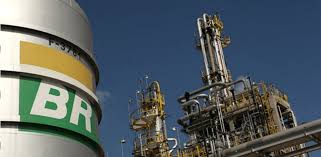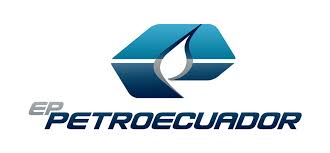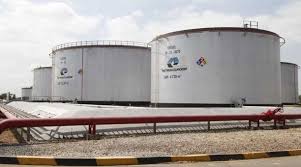Vitol’s Bribery Schemes in Brazil, Ecuador and Mexico (Part II of III)

Vitol’s bribery scheme stretched into three separate countries – Brazil, Ecuador and Mexico — and was carried out over a ten-year period.
The Statement of Facts is instructive in describing the means by which Vitol used false documentation and financial arrangements involving offshore accounts, shell companies and correspondent banking transactions,
Brazil: Confidential Information
For a nine-year period, 2005 to 2014, Vitol paid more than $8 million in bribes to Brazilian officials at Petrobras for valuable oil purchase and sale contracts. Vitol earned at least $33 million in profits from these corrupt contracts.
At the center of this was a Petrobras official who received $3 million in bribes, most of which he kept and occasionally shared with three other Petrobras officials. In exchange, the Petrobras officials provided valuable confidential information, including “market intelligence” concerning import and export forecasts and other information to benefit Vitol in trading activities; and “last look” information concerning confidential bid information from Vitol’s competitors that Vitol used to calculate appropriate bids to win fuel contracts.
The market intelligence information was detailed in weekly internal Petrobras reports that contained production volume and quality, anticipated imports, shipping routes and cargo loading details. The Vitol Trader specifically requested that the Petrobras official provide information “through the back door” because Petrobras’s traders “will never tell you anything.”

In 2005, during a lunch meeting, a Vitol executive offered the Petrobras official monthly $5000 payments for confidential. The Vitol executive shared the confidential information with two Vitol traders on a regular basis. The Vitol executive and the Petrobras official regularly met in person to transfer the confidential information using electronic storage devices. Several years later, the monthly bribery payments increased from $5000 per month to $12,000 per month.
In February 2006, the Petrobras official also offered to provide the Vitol executive with “last look” information on confidential competitive bids for fuel oil that Petrobras received from other companies including Vitol’s competitors. Vitol used this information to tailor its bids for the same products in order to win the bid. Vitol agreed to pay bribes equal to eight cents per barrel of fuel oil that Vitol purchased from Petrobras in winning tenders.
The Vitol executive shared the confidential bidding information with two Vitol traders and other Vitol group employees in Houston via telephone and email. The Vitol traders referred to this confidential information as the “gold number” or the “golden number” in emails. This information allowed Vitol to match or offer a slightly lower amount to win the tender.
After winning the bid, Vitol took possession of the oil cargo in Houston, Texas. The Vitol executive created a fictitious company in Brazil which invoiced Vitol for a per-barrel commission on the trade. The invoice directed Vitol to wire funds through a US correspondent bank to a bank account in the Bahamas associated with a third-party responsible for making the bribery payment to the Petrobras official.

During an eight-year period, from 2006 to 2014, Vitol paid for and received confidential bid information for over 50 Petrobras tenders. On at least five other occasions, Vitol paid per barrel bribes to the Petrobras official and three other Petrobras officials for tenders outside Brazil in which Vitol was a competitor.
The Vitol executive used the fictitious Brazil company on numerous occasions to invoice Vitol for amounts that included bribery payments. Vitol paid many of these invoices from an account in Switzerland to other accounts in Switzerland and the United States, ultimately for the payment of cash bribes to Petrobras officials. In most cases, these payments were made from Switzerland and the United States to accounts in the Bahamas and the Grand Cayman, which were maintained by third parties to money launder and convert the funds into Brazilian currency. The money was then transferred to Brazilian or offshore bank accounts.
Brazil 2011-2014: Pricing Information
While the above-described scheme was ongoing, during the period 2011 to 2014, Vitol also made corrupt payments of more than $5 million to five other Petrobras officials through third-party intermediaries, and two Brazil consultants, in exchange for confidential pricing information that Vitol used to bid on fuel contracts from Petrobras.
Consultant 2 negotiated with a Petrobras official, through Consultant 1, to establish corrupt prices for Petrobras contracts that included bribes to several Petrobras officials and commissions to the two consultants. The participants executed sham negotiations that eventually landed on the confidentially-known and agreed on price. The parties entered into around 30 transactions with Petrobras between 2011 to 2014.

To disguise the payments to the Petrobras officials, Vitol entered into sham consulting agreements with companies controlled by Consultant 2. Once the trades were finalized and the cargoes delivered, Consultant 2 sent Vitol an invoice for the commission from Consultant 2’s companies. Consultant 1 and 2 kept a portion of the payment and used the balance to pay bribes to the Petrobras officials by wire transfers into bank accounts controlled by the Petrobras officials in Uruguay and Brazil.
Ecuador and Mexico
Between 2015 and 2020, Vitol paid $2 million in bribes to government officials in Ecuador and Mexico. To execute the scheme, Vitol entered into sham consulting agreements, set up shell companies to launder corrupt payments, created fake invoices and used email accounts with pseudonyms to transfer funds to offshore shell companies. The illegal payments were made through multiple bank accounts in New York City.
Vitol and Ecuador Consultant 1 paid bribes to two government officials at Petroecudaor, the state-owned oil company, in exchange for identifying business opportunities for Vitol, and in some cases using their influence to ensure Vitol was successful in securing these opportunities.
In 2016, Vitol, Ecuador Consultant 1 and a Petroecudaor official worked to secure Vitol two valuable contracts and bypassing a competitive tendering process. Vitol, Ecuador Consultants 1 and 2 agreed that a consulting company owned by Ecuador Consultant 1 and 2 would pay bribes to the Petroecuador officials to facilitate the award of a valuable fuel contract to benefit Vitol. The bribe amount was calculated based on a per barrel commission.

Ecuador Consultant 1 and 2 used a third-party intermediary to transfer the bribe amounts after the consultants took their share of the commissions. Vitol wired the payments from a correspondent bank account located in the United States to a bank account in Curaçao in the name of a shell company maintained by the third-party intermediary, who in turn transferred amounts to an account located in Portugal for the benefit of a Petroecuador official.
In Mexico, between 2015 and 2020, Vitol made bribery payments to Mexican officials to receive inside confidential information. For example, in or about 2018, Vitol paid bribes to a Mexican official at a PEMEX subsidiary. To execute the scheme, Vitol used two Mexican entities to execute sham consulting agreements with shell companies controlled by the same third-party intermediary used in the Ecuador bribery scheme.















